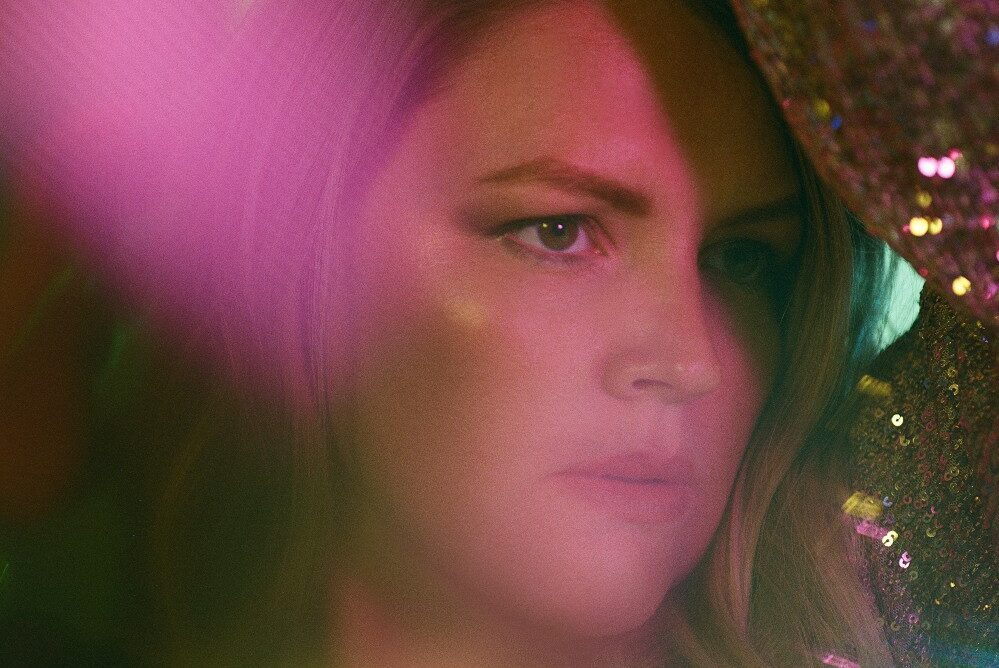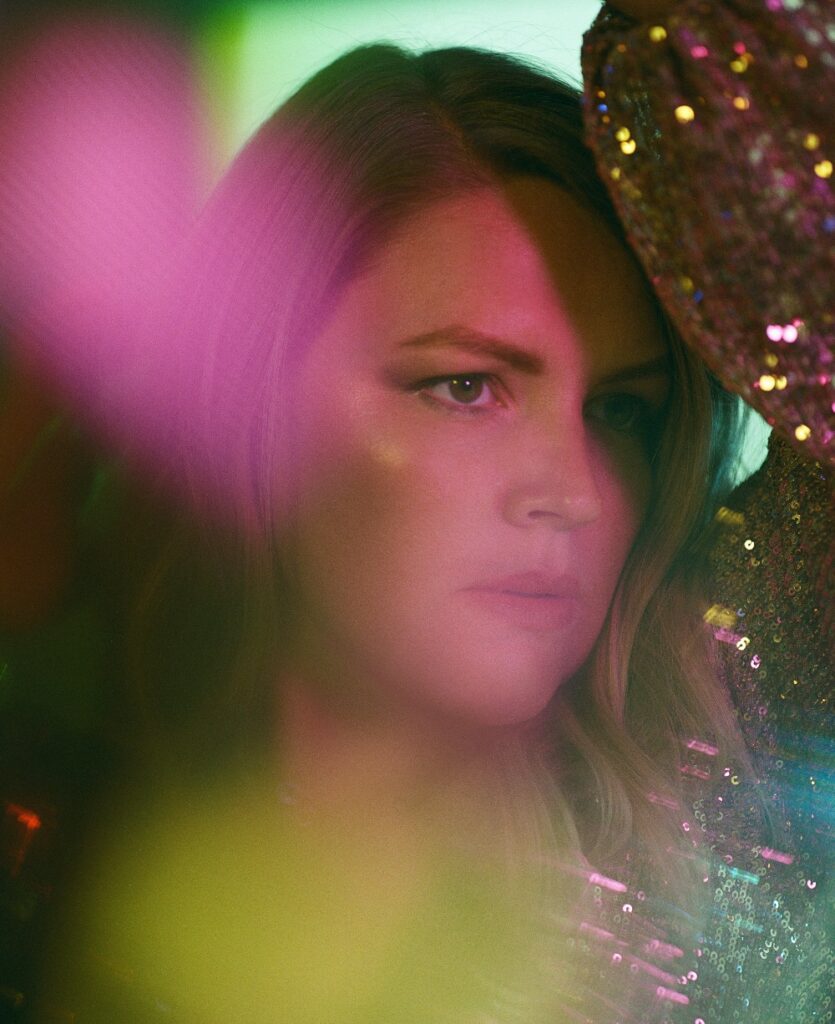Gian Slater Segues From Jazz Cat To Synth Pop Siren On New LP, Premieres “Spider” Video


Performer, vocalist and composer Gian Slater could have limited herself to purely working in the jazz world – but why would she, when she excels at pushing boundaries? After eight albums of original music, and numerous collaborative projects, she pushes those boundaries yet again on her newest release, Grey Is Ground, out April 16th via Biophilia Records, with a small in-person launch show on April 17th at The Jazzlab in Melbourne’s Brunswick East. The album is awash in luscious synth-pop soundscapes that swirl, ebb, and twine around Slater’s spellbinding voice.
“The name was inspired by this sense of a neutral place, where you’re open to mystery,” explains Slater. “There’s colour all around you, amazing and exciting, but then there’s this neutral place that is my ground. Just because I feel uncertain doesn’t mean that I can’t feel the ground beneath me. That was the analogy I was trying to make, that there’s still ground. There’s honesty and truth to that neutral space.” Slater laughs. “I can describe feelings in songs, but trying to break that down in this conversation is really difficult!”
Gian Slater began composing Grey Is Ground when she was pregnant with her first child, and began recording when he was just six months old. This emotional atmosphere allowed her to question her priorities in life and in her work, and to sculpt soundscapes and lyrics that reflected her investigations. Rather than following her traditional methodology, Slater embraced the uncertainty that had previously instilled fear in her.
“It’s definitely a musical map of that time of my life. I really embraced the acceptance of mystery in the making of this album. I wanted to focus on listening, which as a parent is a continual lesson I learn daily,” she says. “The music itself, too, is really inspired by embracing the unknown. There’s great power in the vulnerability of not knowing the answer. With access to so much information these days, we feel like we should know the answers. So I found it cathartic to write this music.”
“Spider,” the intensely energetic opening track on the album, “cuts to the chase of what the whole album is about,” Slater adds. “’Spider’ is the centre of a web of mystery. I was interested in describing that knotted up feeling of uncertainty – the layers of doubt, questioning, anxiety, a search for truth underneath the superficial. ‘Spider’ is my metaphor for a truth that may be painful and dark – and a surrender to embrace the spider.”
Its unsettling lyrics (“Lift me up out of shell/Out of perfume-covered smell/Give me blood and bone/Give me essence not dilute/Give me wisdom over youth/Or give me just your eyes”) are brought to life by the “ambiguously rhythmic” dancing of Lilian Steiner and Melanie Lane in a video for the track, shot by Madeline Bishop and premiering today via Audiofemme. As Slater says, “The song rides on this rhythm, searching for the release of truth.”
“In the early stages of 2020, I reached out and asked if Lilian and Melanie would dance to ‘Spider’ in their homes, recording on their iPhones. Their improvisations reflected a duality of mystery, a truth in two perspectives; the shadow and the light, the flowing and the rigid,” explains Slater. “As soon as it became possible with COVID restrictions, we filmed the dancers together side by side, but still improvising freely.”
Slater says both she and Bishop were completely moved by the dancers’ interactions. “I was so drawn to way Lilian and Melanie improvised through ‘Spider.’ They embodied the power and vulnerability in the song in such an intuitively special way,” Slater says. “Then the very multi-talented label director of Biophilia Records, Fabian Almazan, edited the footage to create more texture, ambiguity and pace. He really added another layer of abstraction that reinforces the themes.”
In many ways, collaboration has become essential to Slater’s process. For Grey is Ground, she worked with Barney McAll, who has provided production and keyboards for Sia, Daniel Merriweather and Aloe Blacc, trumpeter Phil Slater, and drummer Simon Barker, with additional drum programming by EDM beatmaker Emefern. Her collaborators are skilled in the art of merging classical instruments with a pop sensibility.
“I met Barney about 15 years ago in New York through mutual friends,” recalls Slater. “He’s an Australian who lived in New York for many years. He’d heard my debut album when I was in my early 20s and he was a very senior musician at that time. He’s been incredibly supportive, a mentor and friend. He’s one of my most significant musical collaborators. We made an album together in a band called Sylent Running. It made its way around, even though it was a pretty underground recording.”
Grey Is Ground took seed after Slater joined Barney McAll and Simon Barker for a performance at the Sydney Opera House in 2015. The trio found their groove, providing the impetus for Slater to start composing an album of music that played to their strengths, both individual and combined. “Simon is one of the most incredible musicians and drummers in the world. He’s got his own very individual rhythmic language,” says Slater. “So, I really considered that, and Barney’s world too.”
Slater says the first iteration of the album’s title track – the first written for the album – had a lot of improvisation in it, built on Barker’s layers of rhythmic ideas. “The verse has a straight, simple, floaty feel, and then it moves towards a chorus section. There’s three different rhythmic cycles; the keyboard part, the pulse, and the melody. They all meet and end at the same time, but they have different cycles occurring simultaneously,” she says.
The end of the track is a big “release section.” Slater explains that tension and release occurs when the song has been bubbling away, but then, towards the end of the track, the harmony remains in a loop without lyrics, as there is a surrender and letting go of the song’s tension.
Across the album, Slater’s mellifluous voice works organically with the instrumentals and patterns within the music. On lead single “Ocean Love,” she toys with timing so that her voice rides over and under the melody, playfully racing ahead or falling just behind its momentum, clever without being contrived. The synthesized drums hint at a slowed-down tropical house beat, the harmonised vocals layering like waves rolling in one over the other. Right at the end, like stars studding their light through a perfectly black sky, there’s a rain of snare drums, a patter of open hi-hat and cymbals enveloped in tinkling piano keys.
Internationally, in the world of jazz alone, Slater has swept up prizes galore and premiered new work at both the Melbourne International Jazz Festival and the Capital Jazz Festival in Canberra. She won the MJFF Apra Composers Commission in 2010, won Best Jazz Vocal Album (2010 and 2013) at the Bell Awards, and received the Creative Australia Fellowship in 2012.
When she hasn’t been creating and performing works for herself and in collaboration with other composers and performers, she’s worked as a lecturer in Jazz and Improvisation at both Melbourne and Monash Universities, the legendary Western Australian Academy of Performing Arts and also The Manhattan School of Music. Inspiring her students to be brave and authentic comes naturally for Slater.
“I’m taking a year off from Monash this year, but I’m still with Melbourne University’s Victorian College of the Arts, as I have been for 15 years,” says Slater. “I’m passionate about teaching, particularly teaching vocalists and empowering them to make their own choices about the music they want to make.”
Likewise, Slater switched up her usual modus operandi when it comes to composing, which has typically meant finding the harmony, layering on the melody, then weaving in rhythm intuitively and finally. For Grey Is Ground, the rhythm provided the primary spark for each song, upon which Slater added melodies, interwoven with the synaptic-stimulus of synth waves.
“I think the electronic thing had been explored by Barney and I in Sylent Running. With this new album, I really wrote the music for Barney and Simon in an acoustic version, but it became clear really soon that the architecture of my compositions leant themselves to the electronic synth world,” Slater says. “I had been playing synth in other projects and using it in the composition process, so it’s a detour away from the other music I’ve been creating. None of my music neatly fits into a genre, but prior to this, it’s been definitely more jazz-influenced.”
The result treads beyond the everyday world into an ethereal wonderland, both familiar in its nostalgic references and intriguingly novel. “Barney and I were drawn to pulling apart this music, giving it a lot of love in terms of recording tracks with a sense of curiosity around trying stuff out and not just doing one or two takes. There were so many layers, we really tried to bring new things out us as artists and the compositions,” says Slater. “I can hear in each layer the enormous time and those magical moments that we found along the way.”
Follow Gian Slater on Facebook and Instagram for ongoing updates.

